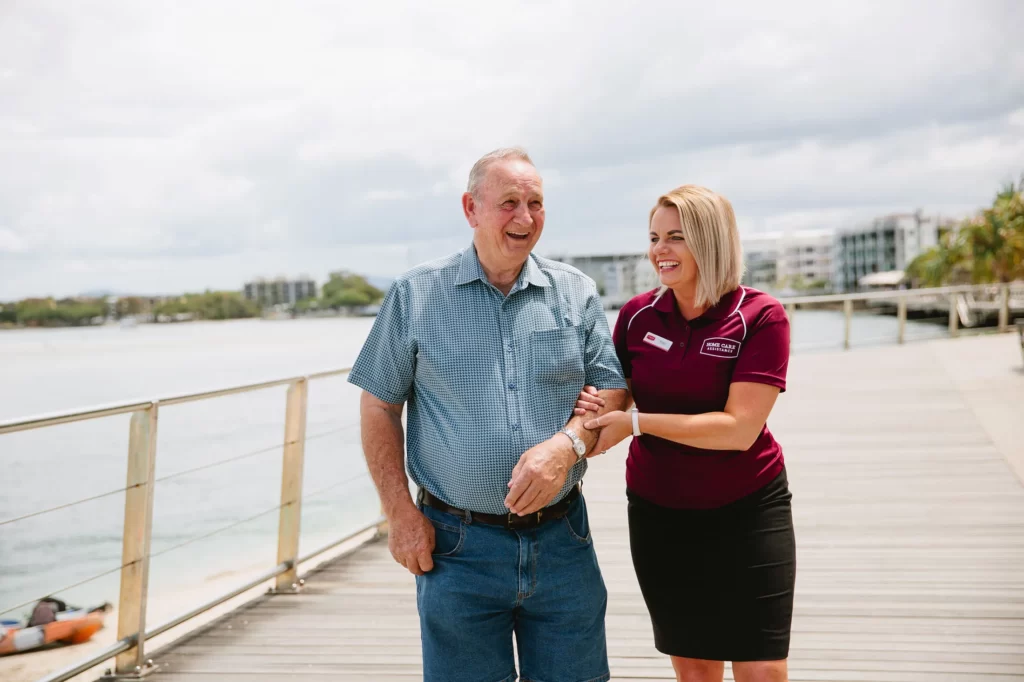Clutter isn’t just unsightly. When a senior’s home is overflowing with stuff, it can become a safety hazard. Family carers can help their senior loved ones organise and get rid of unnecessary items. Here are five ways to help older adults reduce clutter.
1. Broach the Subject Tactfully
Bringing up the topic of clutter can be a difficult task. However, if clutter has become a safety hazard, discuss the subject with your loved one. Acknowledge the issue as tactfully as possible and offer help. If your loved one accepts the offer, it’s time to begin working on an organisational plan.
Consider hiring a professional carer if your loved one needs help decluttering or managing other tasks. Newcastle home care professionals can be a wonderful boon to seniors. Whether they require around-the-clock supervision or just need assistance with exercise and household tasks a few days a week, seniors can enjoy a higher quality of life with the help of trusted in-home carers.
2. Understand the Root of the Problem
Most of the time, seniors don’t accumulate clutter intentionally. Oftentimes, mild disorganisation simply spirals until the clutter becomes a problem. Seniors with mobility issues or other serious health conditions are likely to have clutter in their homes, as cleaning can require physical exertion. Sometimes, disorganisation leads to hoarding. If you suspect there is a psychological reason for the clutter, you may need to take different measures.
3. Assess the Home
When decluttering your loved one’s house, make a list of what needs to be done. Investigate every room of the house, and take a note of all potential safety hazards. The clutter may obstruct exits and entrances, cause structural damage, or hide issues like mould and mildew. Once the home has been inspected, list the essential decluttering tasks in order of importance.
Decluttering can be a challenging duty for family carers who have other important tasks to tend to. Newcastle respite care professionals can assist seniors with a wide array of daily tasks, offering family carers the chance to focus on other personal responsibilities or take a break to prevent burnout. Whether it’s for a few hours a day or a few days a week, respite care is the perfect solution for family carers who are feeling overwhelmed.
4. Take Things One Step at a Time
Instead of trying to clean the entire house at once, your loved one should go room by room. To keep the cleaning process on track, separate all of your loved one’s possessions into three separate boxes and label them “Keep,” “Donate,” and “Throw Out.” While sifting through the possessions, place each item in the appropriate box. If your loved one isn’t sure what to do with a rarely used silver flatware set, suggest keeping a few pieces and giving the rest away to family members. When you help your loved one find acceptable solutions, he or she may be more amenable to the process.
5. Create a New Organisation System
After your loved one has sorted the belongings and gotten rid of unwanted items, it’s time to find space for the items in the “Keep” box. For items that aren’t going to be used daily, find a dedicated storage space like a closet or pantry. Organise the storage space with boxes, shelves, or other organisational tools, and label everything so your loved one won’t have difficulty finding things. Give everything a designated place so your loved one is less likely to accumulate excess clutter.
Decluttering is just one of the many ways older adults can boost their overall health and wellbeing. If you have a senior loved one who needs help maintaining a high quality of life while ageing in place, reach out to Home Care Assistance, a leading provider of elderly care Newcastle families can rely on. All of our carers are carefully screened with qualifications in personal support, police checks, and current first aid. To hire a professionally trained carer for your ageing loved one, call us at (02) 4089 3000 today.
